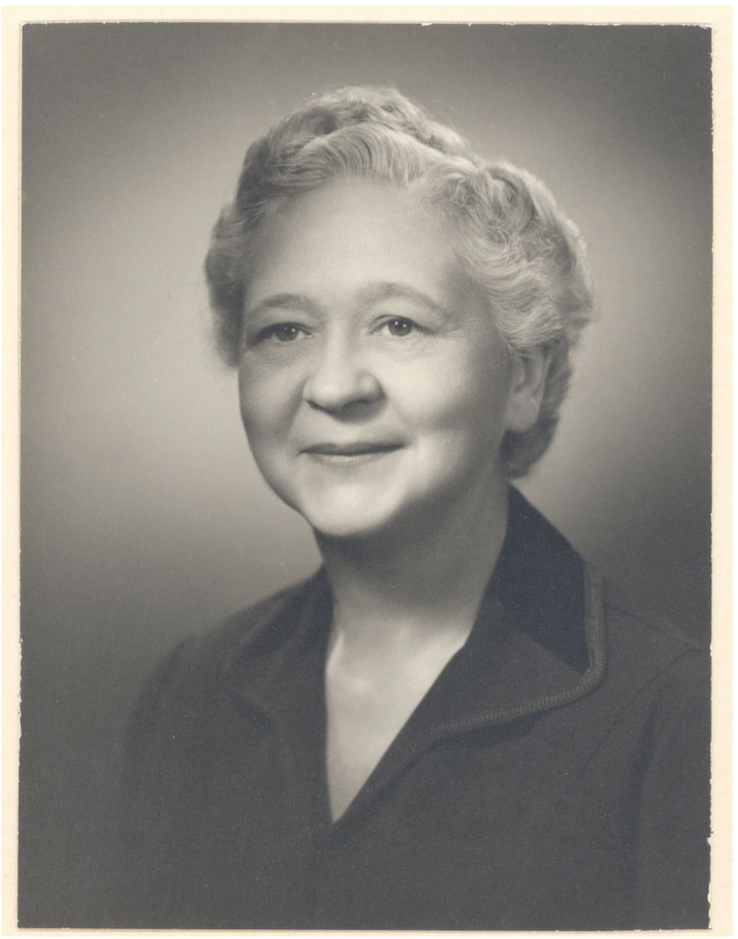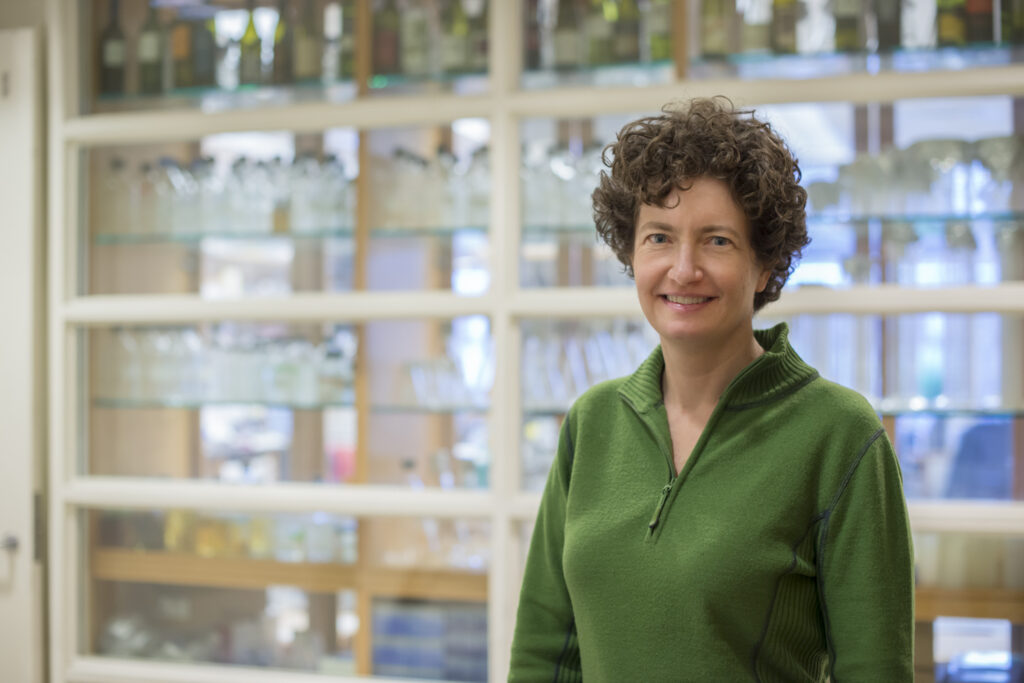In recognition of International Women’s Day, the Department of Neuroscience is proud to host Rachel Wilson, PhD, for this year’s Mildred Trotter Lecture on Wednesday, March 8. Wilson, the Joseph B. Martin Professor of Basic Research in the Field of Neurobiology at Harvard Medical School, is a leader in the field of systems neuroscience and is regarded for her innovations in techniques to manipulate and monitor neurons and for advances she’s made in understanding the neural computations that underly behaviors. She will present her research, some of it unpublished, on mapping the cellular circuits in the brain responsible for navigation in the fruit fly.
The Lecture is named for Mildred Totter, PhD, renowned anatomist and first woman full professor at Washington University School of Medicine. Among her many scientific contributions, Trotter developed a method for estimating an individual’s stature from long limb bone lengths—a valuable tool in forensic medicine. Trotter, who was a member of the Department of Anatomy (as the Department of Neuroscience was known in the early 20th century) for more than 55 years, was an advocate for women in science and spoke out about inequities they faced.
“I felt honored and moved to receive this invitation,” said Wilson. “I think that women in science face challenges that haven’t gone away even though there’s been a lot of progress.” Wilson added that it’s important for departments and programs to recognize the challenges and successes of women in science. “Setting aside a day or an event to think about this is healthy and a good thing.”

Now in its 40th year, the Trotter Lecture coincides with International Women’s Day, a global campaign to push for awareness of discrimination and celebrate women’s accomplishments. The 2023 theme is #EmbraceEquity. In STEM, inequities persist. Although women are nearly half the US workforce, they make up just about one-quarter of STEM professionals and they tend to earn less money.
“It is imperative that the scientific community examine gender gaps and why they exist so that we can adopt measures to address these inequalities,” said Linda J. Richards, PhD, Edison Professor and Chair of the Department of Neuroscience. Richards is the eighth Chair of the Department of Neuroscience and the first woman to be appointed to this position, acknowledging Dr. Sarah Luse who was acting Chair of the Department from 1964-1967. While in Australia prior to joining Washington University, Richards led forums, discussion groups and mentoring groups for women in science. As President of the Australasian Neuroscience Society (ANS) she started a new committee for equity and diversity within the society and instigated the first plenary lecture named after a woman at the annual meeting of ANS.
I think that women in science face challenges that haven’t gone away even though there’s been a lot of progress. Setting aside a day or an event to think about this is healthy and a good thing.
Rachel Wilson, PhD
Wilson said that, in her experience, there’s widespread support expressed in the scientific community for all genders to be included, but that implicit biases—from men and women—impede progress. For instance, she participated in committee to evaluate proposals for developing new technologies. “What I saw very frequently was when a man would propose a new, risky technology, the reviewers would say, ‘He’s smart, he’ll figure it out.’ When a woman would propose a risky technology, people would ask, ‘Is she getting in over her head? Are we setting her up for failure?’ These concerns come from a good place. But it felt to me this double standard was troubling.”
Wilson’s also observed efforts to bypass discrimination. For instance, the Cosyne meeting, which gathers experimental and theoretical systems neuroscientists annually, has moved to a double-blind abstract review process. And in her own experience, Wilson was hired as an Assistant Professor at the same time as two other women in her department, which helped create an instant support network. “It’s useful to make an effort to recruit multiple people from underrepresented groups because as teams they can support each other in a way that’s very special,” Wilson said. (Carla Shatz, PhD, the then-Chair who hired Wilson, presented the Trotter Lecture in 1991. She was the first woman to receive a PhD in Neurobiology from Harvard, the first woman professor at Stanford Medical School in Neuroscience, and the first woman to become Head of the Department of Neurobiology at Harvard.)
Wilson suggested creating forums to discuss initiatives, concerns and questions regarding diversity and inclusion within departments and programs and to let people openly voice their ideas. It’s also critical that everyone be involved, and not just individuals from underrepresented groups. “Mentorship training, workshops, and one-on-one discussions talking honestly, I think it’s really important,” said Wilson. “People who are not underrepresented sometimes feel they’re not welcome in conversations of diversity and equity or they should keep their mouth shut. It’s important for them to participate in the conversation.”
Event details
40th Mildred Trotter Lecture presented by Rachel Wilson, PhD
“Neural Networks for Navigation”
Wednesday, March 8, 2023
12 p.m.
Zoom: https://bit.ly/Named_Lectures
Hosted by: Dr. Linda Richards & Dr. Kristen Prufrock
Learn more about the Trotter Lecture and see past speakers »
